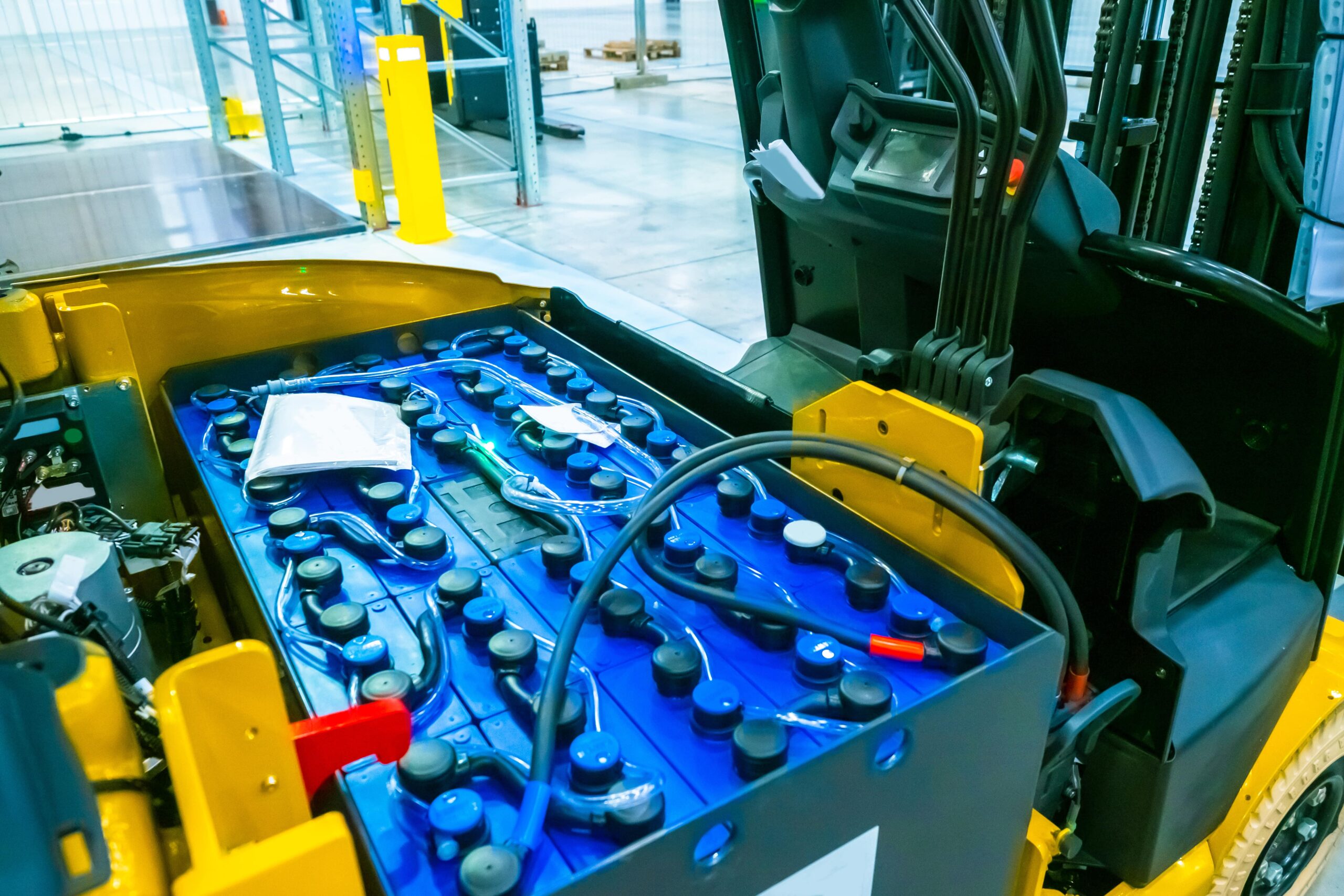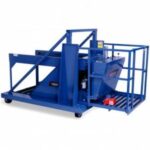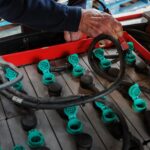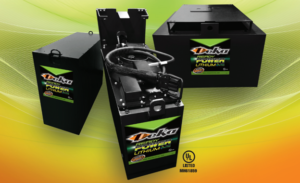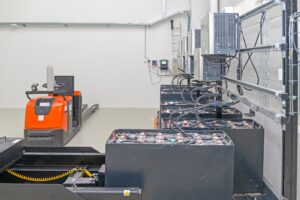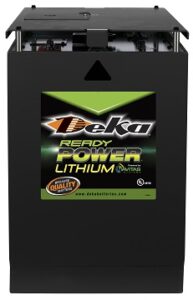No matter if you own scissors lifts, forklifts, an articulating boom lift or any other type of industrial lift choosing the right battery is essential. There are a variety of batteries to choose from based on individual needs. Some are more cost-effective up front while others provide longer-term benefits. Some batteries require less maintenance while others have a shorter charge time.
What are your lift battery needs? Would a battery that improves operations, minimizes downtime, or optimizes productivity be the right fit? Here you can explore the different types of batteries to consider to help you find the most suitable option.
Understand Your Equipment
The first step in choosing the right industrial lift battery is to understand the specific requirements of your equipment. Different lifts have varying power needs, and using the wrong type of battery can lead to inefficiency and potential damage. Consider factors like the lift’s voltage requirements, weight capacity, and usage patterns to determine the appropriate battery specifications.
When choosing batteries, you also want to consider how your equipment is used. Do you run 24/7 or is your equipment used sporadically? Understanding all of this is the first step in finding the right battery.
Battery Types to Choose From
There are a couple of types of batteries commonly used in industrial lifts, each with its own advantages and disadvantages. The most common types include lead-acid batteries and lithium-ion batteries.
Lead-Acid Batteries: These batteries are known for their reliability and cost-effectiveness. They are suitable for applications with consistent usage patterns and are well-established in the industry.
Lithium-Ion Batteries: Lithium-ion batteries offer a higher energy density, longer lifespan, and faster charging capabilities. They are ideal for operations that require frequent use, quick turnaround times, and where weight is a critical factor.
Historically, lead-acid batteries were the only available option. Now, lithium-ion batteries add a longer-lasting, faster charging option. However, lithium-ion batteries are more expensive and require different maintenance than lead-acid batteries.
Both types of batteries are viable options, the type of battery you choose will depend on a number of factors.
Consider Operational Factors
Every organization operates differently and these operations dictate their battery needs. Are you a manufacturer that runs 24/7 and requires long-lasting batteries? Do you only utilize lifts for special tasks throughout the week and only require something reliable and affordable? Is your workforce being bogged down by the amount of maintenance required by the extensive amount of batteries you own?
There are several batteries to choose from each offering its own benefits and solving unique problems. Consider how your organization operates and let it be your guide for selecting the right batteries.
Capacity
Assess the energy requirements of your industrial lift equipment to determine the appropriate battery capacity. Consider both the voltage and ampere-hour (Ah) rating to ensure the battery can meet the demands of your machinery.
Charging Time
Evaluate the charging time required for the battery. Quick charge capabilities can significantly reduce downtime and enhance productivity.
Cycle Life
The number of charge and discharge cycles a battery can undergo before its performance degrades is crucial. Lithium-ion batteries often excel in this aspect.
Maintenance Requirements
Different batteries have varying maintenance requirements. Lead-acid batteries typically require regular watering and equalization, while lithium-ion batteries are generally maintenance-free. Consider the available resources and personnel for battery maintenance in your decision-making process.
Total Cost of Ownership (TCO)
Evaluate the total cost of ownership over the battery’s lifespan. While lithium-ion batteries may have a higher upfront cost, their longer lifespan and lower maintenance requirements can result in lower overall costs compared to traditional lead-acid batteries. Consider factors such as purchase price, maintenance costs, and energy efficiency to determine the TCO.
Purchasing the right batteries
Choosing the right industrial lift battery is a crucial decision that directly influences the efficiency and productivity of your operations. By understanding your equipment and operational needs, you can make an informed decision that aligns with your specific needs. Investing time in selecting the right battery will pay dividends in the form of increased reliability, reduced downtime, and improved overall efficiency in your industrial lift operations.
An industrial lift battery supplier will help organizations more thoroughly understand the various types of batteries and find the right batteries based on your needs. Companies in the Mid-Atlantic can contact us for all of their industrial battery needs.

